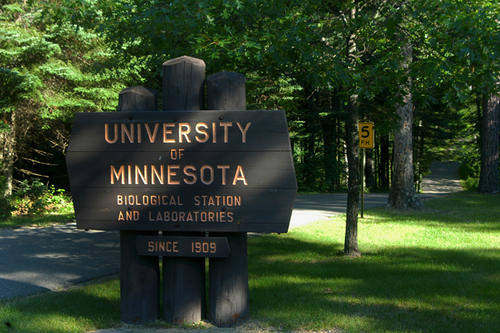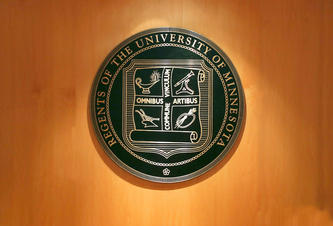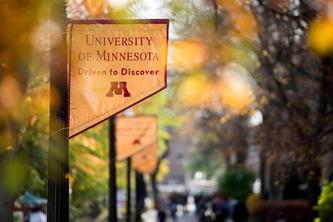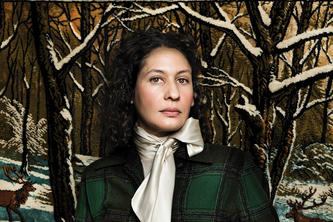
The University of Minnesota’s Board of Regents approved the University’s 2018 capital request to the Minnesota Legislature at its meeting this week, focusing on the institution’s impact across the state. The University’s $238.5 million capital request will maintain, repair or renovate existing University facilities across Minnesota.
“Every day—in more than 29 million square feet of facilities across the state—University of Minnesota faculty, researchers, students and staff are contributing to the economic and cultural wellbeing of our state,” said University of Minnesota President Eric Kaler. “Our 2018 capital request ensures that the work of our faculty, students and staff is not jeopardized by outdated, unsafe or obsolete facilities. I am grateful for the Board’s support of this important effort.”
The University’s capital request does not include funding for new structures. Rather, the request focuses entirely on the preservation and renovation of existing laboratories, research centers, classrooms and outreach spaces.
“The University’s 2018 capital request demonstrates our commitment to the stewardship of our assets,” said Board of Regents Chair David McMillan. “It is fiscally responsible to preserve and maintain existing University facilities, sustaining their usefulness for generations. We must ensure that the University’s facilities are safe, up to date and best enable us to continue all of the work that benefits the state."
The University of Minnesota’s 2018 capital request includes four priority initiatives:
Higher Education Asset Preservation and Replacement (HEAPR) funding will maximize the effectiveness and extend the life of University facilities across the state. Projects include: (1) health, safety and accessibility; (2) building systems; (3) utility infrastructure; and (4) energy efficiency. The HEAPR request totals $200 million in state funding.
The Greater MN Academic Renewal funding will renovate and renew obsolete classrooms and laboratories in five buildings on the University of Minnesota Crookston, Duluth and Morris campuses. Underutilized spaces will be converted into modern facilities that meet students’ needs. This request includes $10.5 million in state funding and $5.3 million in University investment.
Pillsbury Hall Capital Renewal will renovate the obsolete and unused science building on the East Bank of the Twin Cities campus into modern teaching, learning and research spaces to serve more than 6,000 students studying the humanities. The initiative includes $24 million in state funding and $12 million in University investment.
The Glensheen Renewal initiative will use a state investment of $4 million to create a Glensheen Renewal Challenge, which will be a program to match one-for-one donations to preserve the historic Glensheen mansion in Duluth.
The 90th Legislature of the State of Minnesota will reconvene on February 20, 2018.
The Board of Regents also:
- Adopted the new Board of Regents Policy: Sexual Harassment, Sexual Assault, Stalking and Relationship Violence and adopted modifications needed to align Board of Regents Policy: Student Conduct Code. The policies will become effective on January 1, 2018. Additionally, the Board charged the President and General Counsel to make recommendations on provisions within the Student Conduct Code policy that establish when the conduct of students can be attributed to groups of students. The Board also charged the President to solicit public comments on the proposed Administrative Policy: Sexual Harassment, Sexual Assault, Stalking and Relationship Violence. That policy will be brought to the Board of Regents for ratification in December 2017.
- Began a conversation on the University’s fiscal year 2019 operating budget, which included the President’s recommendation for non-resident, non-reciprocity undergraduate tuition rates on the Twin Cities campus.
- Discussed interdisciplinary efforts in the University research enterprise in advance of the annual report on University research, which will be presented to the Board in December.
- Approved the appointments of Michael Berthelsen as vice president for University Services and Allen Levine as vice president for Research. Over the past 13 months, Berthelsen has served as interim vice president for University Services. In his role, Berthelsen leads non-academic operations of the University’s Twin Cities campus, including some system-wide services. Since January 2017, Levine has served as interim vice president for Research, overseeing the University’s $900 million research enterprise across all campuses and facilities, including the administration of sponsored projects, research compliance and regulatory offices and units dedicated to economic development and technology commercialization.
- Received President Kaler’s October report to the Board, which focused on the tangible ways the University acts on its mission. This includes the University’s recent designation as “2017 Corporation of the Year” by the North Central Minority Supplier Development Council. Last year, the University's supplier diversity efforts resulted in an $11.2 million increase over the past year in the use of businesses owned by women, minorities and disabled suppliers, with a total spend of $82 million of business with those companies. The North Central Minority Supplier Development Council recognition is a reflection of the vision of the Board of Regents’ decision to develop policy for the creation of a Supplier Diversity program in November 1996.
The Board will meet next on December 14 and 15, 2017. Go to regents.umn.edu for more information.
- Categories:
- Campus Affairs





